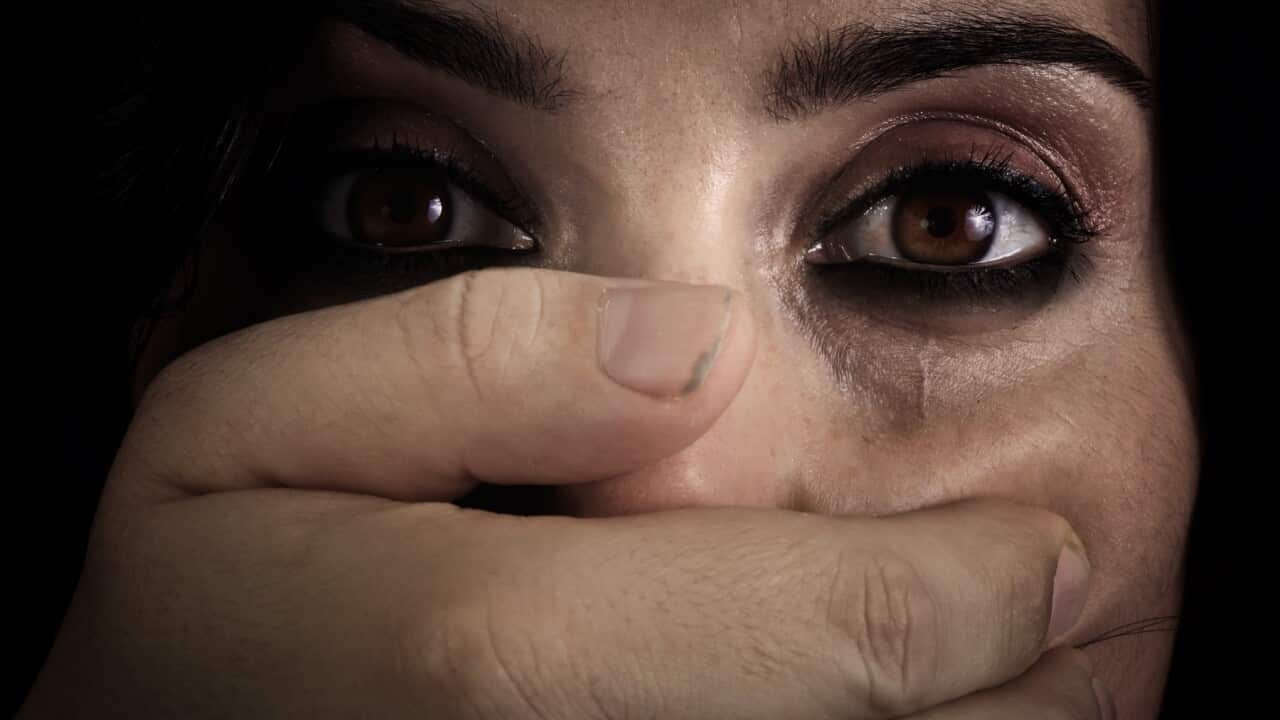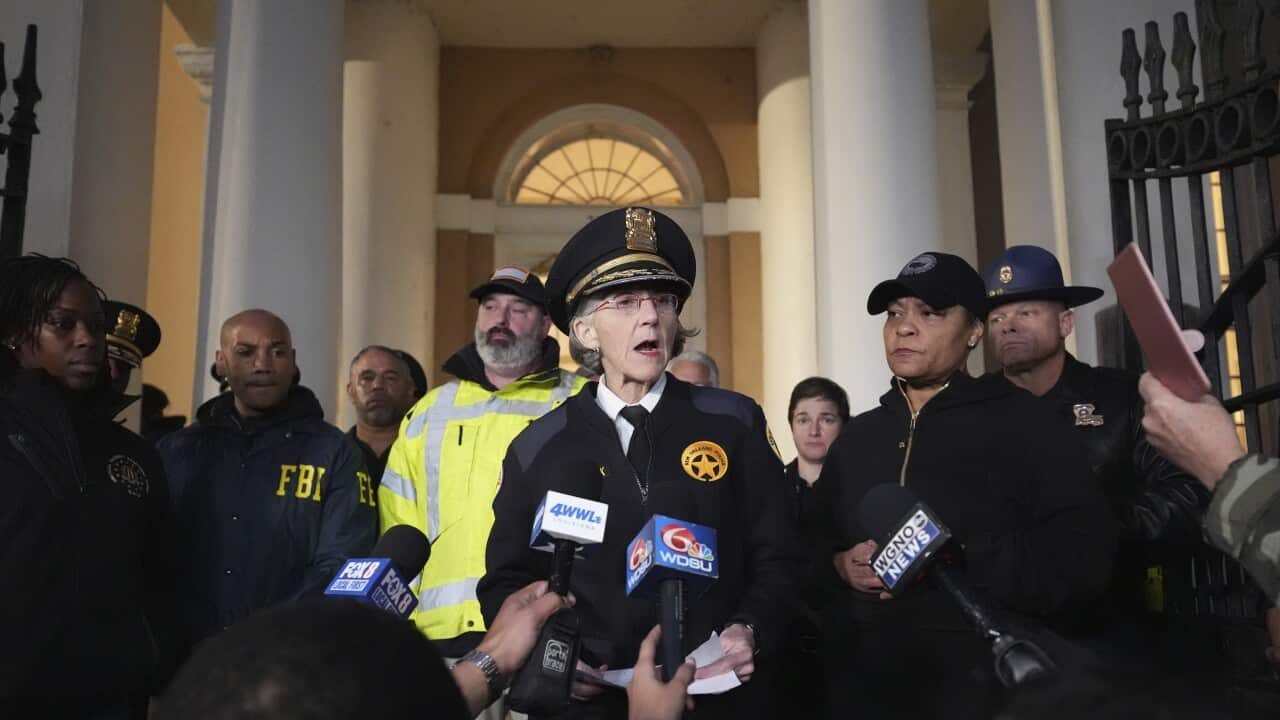Italian
"I'm going to talk generally about the Torres Strait community in North Queensland."
Questa è la voce dello scomparso Eddie Koiki Mabo, che era stato invitato come ospite di una conferenza su Razza e Cultura davanti agli studenti di Educazione della James Cook University nel 1982.
Eddie Mabo era un attivista dei diritti civili, un importante leader per le persone della comunità aborigena e dello Stretto di Torres, e co-fondatore di una delle prime scuole per la comunità indigena in Australia.
Mentre parlava a quella aula di studenti universitari alla James Cook University nel 1982, parlava anche dell’intenzione sua e di altre quattro persone di avviare un’azione legale per confermare i loro diritti tradizionali come proprietari della terra di Mer o Murray Island.
Mentre lavorava come giardiniere all’università, Eddie Mabo ebbe una conversazione con alcuni storici su come sperava di trascorrere i suoi ultimi giorni a Murray Island, rimanendo scioccato quando gli dissero che quella terra apparteneva alla Corona e non alla sua famiglia.
Gail Mabo è la figlia di Eddie Mabo.
"My Dad was quite angry at this point because he, for him the whole notion of owning land was the fact that it was handed down from generation to generation and then for him to have no right to that land well that's where he got that fire in his belly **sense of determination** to actually go you know what I'm going to fight this because this is not right because we have a right to our land and to be able to hand it down to our children."
Eddie Mabo ingaggiò l’avvocato Greg McIntyre per agire in sua vece nel caso.
"Eddie always knew that it was going to be significant particularly significant for Murray Islanders Torres Strait Islanders more generally and we were of the view that it may well impact on the mainland."
Fu una battaglia di dieci anni, che è finita quando la Corte Suprema espresse la sentenza il 3 di giugno 1992 in quella che spesso oggi viene presentata come la sentenza Mabo.
Questa sentenza ha riconosciuto i diritti tradizionali delle popolazioni indigene sulle terre e sulle acque.
Ha così ribaltato la dottrina legale del terra nullius che stabiliva falsamente che prima della colonizzazione l’Australia era una terra che non apparteneva a nessuno.
La sentenza ha riconosciuto che le popolazioni indigene avevano occupato l‘Australia per decine di migliaia di anni prima dell’arrivo degli inglesi nel 1788.
Robert Tickner era il ministro per gli affari aborigeni e delle isole dello Stretto di Torres al tempo.
"I remember the day vividly being in the court and being struck by the absolute enormity of this decision that profoundly changed Australia, and for the better in so many ways."
Linda Burney è la ministra per gli Australiani Indigeni nel neo-eletto governo laburista federale.
"That ruling was incredibly significant. I think most people I certainly remember where I was when it came over the radio. For the first time in law Terra Nullius was debunked and that was crucial."
La sentenza Mabo ha tracciato la strada per il Native Title Act e la creazione del nativo Title Tribunal.
In tre decenni da Mabo, la Corte Federale ha emesso 556 delibere ispirate al Native Title.
148 cause devono ancora essere concluse.
Purtroppo, Eddie Mabo è morto cinque mesi prima che la storica sentenza venisse resa pubblica – aveva appena 56 anni.
Il suo avvocato e amico Greg McIntyre ha detto di essere fiero dell’eredità lasciata da Eddie.
"United States Canada and New Zealand had all recognised a similar form of title and we in Australia were a bit late coming to the party but I'm glad we did, it’s now thirty years since we did that, and I think we need to get on and improve on that result."
Il magistrato indigeno appartenente ai Wirdi Tony McAvoy crede che il processo della svelazione della verità e i Trattati siano importanti per lenire le ferite del passato.
"Room needs to be made for Aboriginal people to participate in the democratic process to exercise self-determination and be self-governing."
La figlia di Eddie Mabo ha detto che l’Australia ha intrapreso dei piccoli passi verso la guarigione negli ultimi trenta anni, ma che si sta creando l’inerzia per un cambiamento ancora più grande in Australia.
"But now it's time to lengthen our stride to make things move and to take those things that are given to us now and sit down and have a conversation, a better conversation and sharing that knowledge to actually move us forward as a nation."
English
"I'm going to talk generally about the Torres Strait community in North Queensland."
This is the voice of the late Eddie Koiki Mabo, giving a guest lecture in Race and Culture to education students at James Cook University in 1982.
Eddie Mabo was a civil rights campaigner, a prominent community leader for Aboriginal and Torres Strait Islander people and the co-founder of one of the first Indigenous community Schools in Australia.
As he addressed that room of tertiary students at James Cook University in 1982, he also spoke about plans he and four others had to begin legal action to confirm their traditional rights as landowners on Mer or Murray Island.
While working as a gardener at the University, Eddie Mabo had a conversation with some historians about how he hoped to live out his days on Murray Island and he was shocked when they told him the land belonged to the Crown, not his family.
Gail Mabo is Eddie Mabo's daughter.
"My Dad was quite angry at this point because he, for him the whole notion of owning land was the fact that it was handed down from generation to generation and then for him to have no right to that land well that's where he got that fire in his belly **sense of determination** to actually go you know what I'm going to fight this because this is not right because we have a right to our land and to be able to hand it down to our children."
Eddie Mabo instructed solicitor Greg McIntyre to act for him in the case.
"Eddie always knew that it was going to be significant particularly significant for Murray Islanders Torres Strait Islanders more generally and we were of the view that it may well impact on the mainland."
It was a ten-year battle which ended when the High Court handed down its ruling on June the 3rd 1992 in what's now often referred to as the Mabo ruling.
It acknowledged the traditional rights of Indigenous people to their land and waters.
It overturned the legal doctrine of terra nulllius which had falsely asserted that prior to colonisation Australia was a land belonging to no one.
The ruling recognised that Indigenous people had occupied Australia for tens of thousands of years before the British arrived in 1788.
Robert Tickner was the Minister for Aboriginal and Torres Strait Islander Affairs at the time.
"I remember the day vividly being in the court and being struck by the absolute enormity of this decision that profoundly changed Australia, and for the better in so many ways."
Linda Burney is the Minister for Indigenous Australians in the newly elected Federal Labor government.
"That ruling was incredibly significant. I think most people I certainly remember where I was when it came over the radio. For the first time in law Terra Nullius was debunked and that was crucial."
The Mabo decision paved the way for the Native Title Act and the establishment of the native Title Tribunal.
In the three decades since Mabo, the Federal Court has made 556 Native Title determinations.
148 claims are yet to be decided.
Sadly, Eddie Mabo died five months before the historic decision was handed down - he was just 56.
His lawyer and friend Greg McIntyre says he's proud of the legacy.
"United States Canada and New Zealand had all recognised a similar form of title and we in Australia were a bit late coming to the party but I'm glad we did, it’s now thirty years since we did that, and I think we need to get on and improve on that result."
Indigenous barrister and Wirdi man Tony McAvoy believes truth-telling and Treaties are now important to heal the wounds of the past.
"Room needs to be made for Aboriginal people to participate in the democratic process to exercise self-determination and be self-governing."
Eddie Mabo's daughter says Australia has been taking small steps towards healing over the last 30 years but momentum is building for greater change in Australia.
" But now it's time to lengthen our stride to make things move and to take those things that are given to us now and sit down and have a conversation, a better conversation and sharing that knowledge to actually move us forward as a nation."
Report by Felicity Davey.




